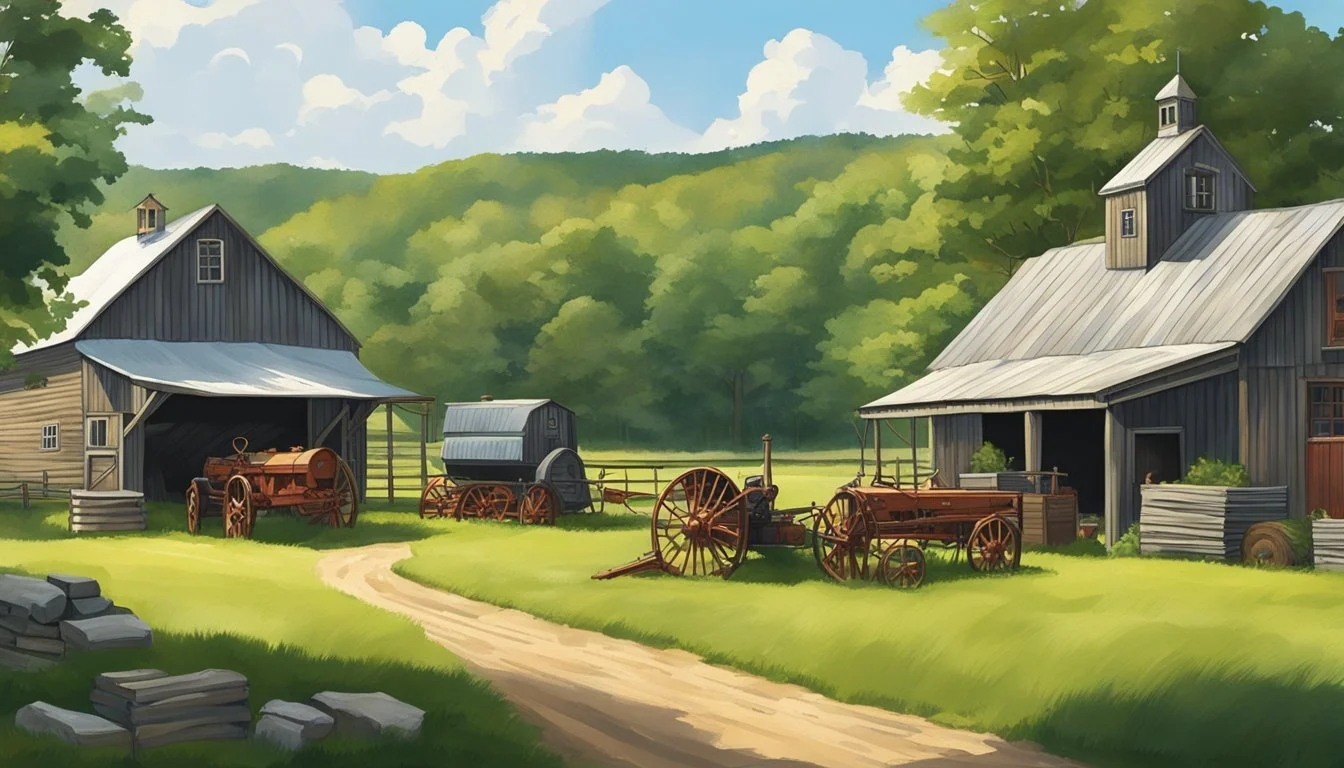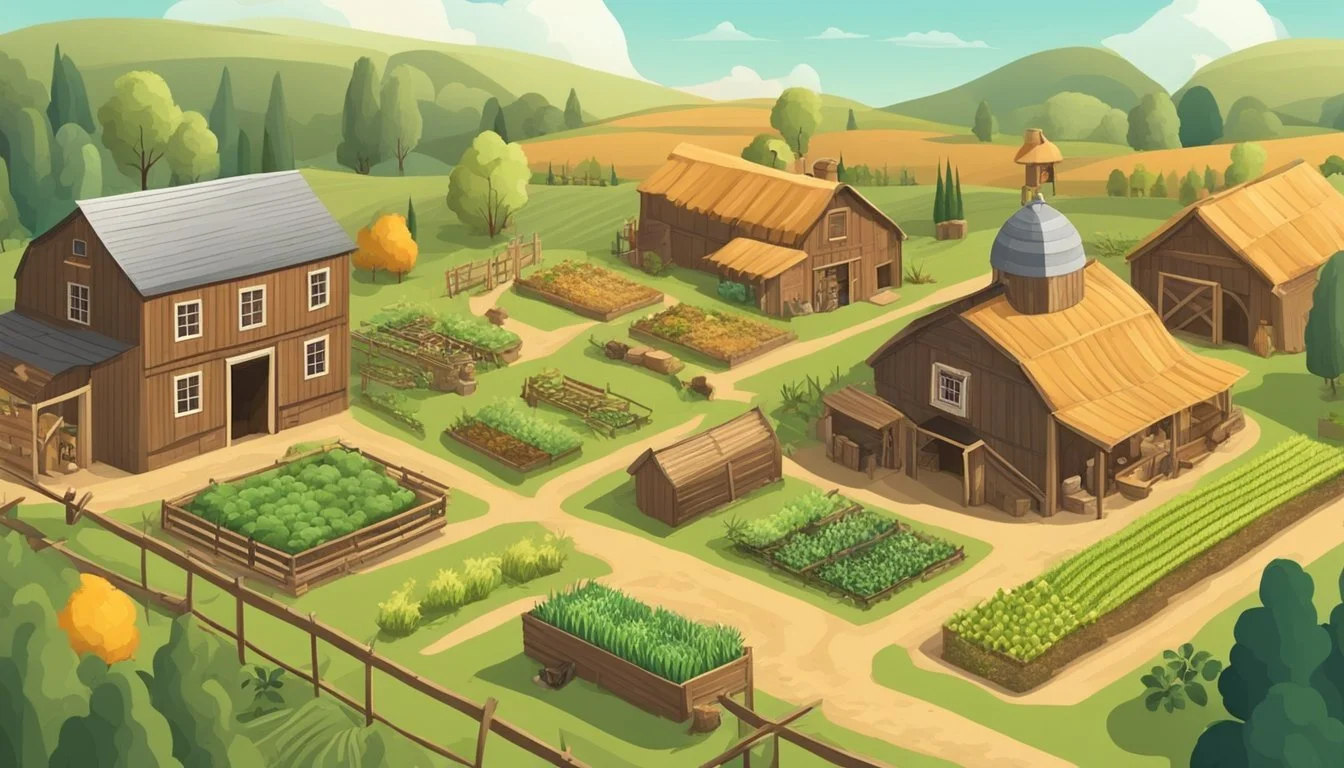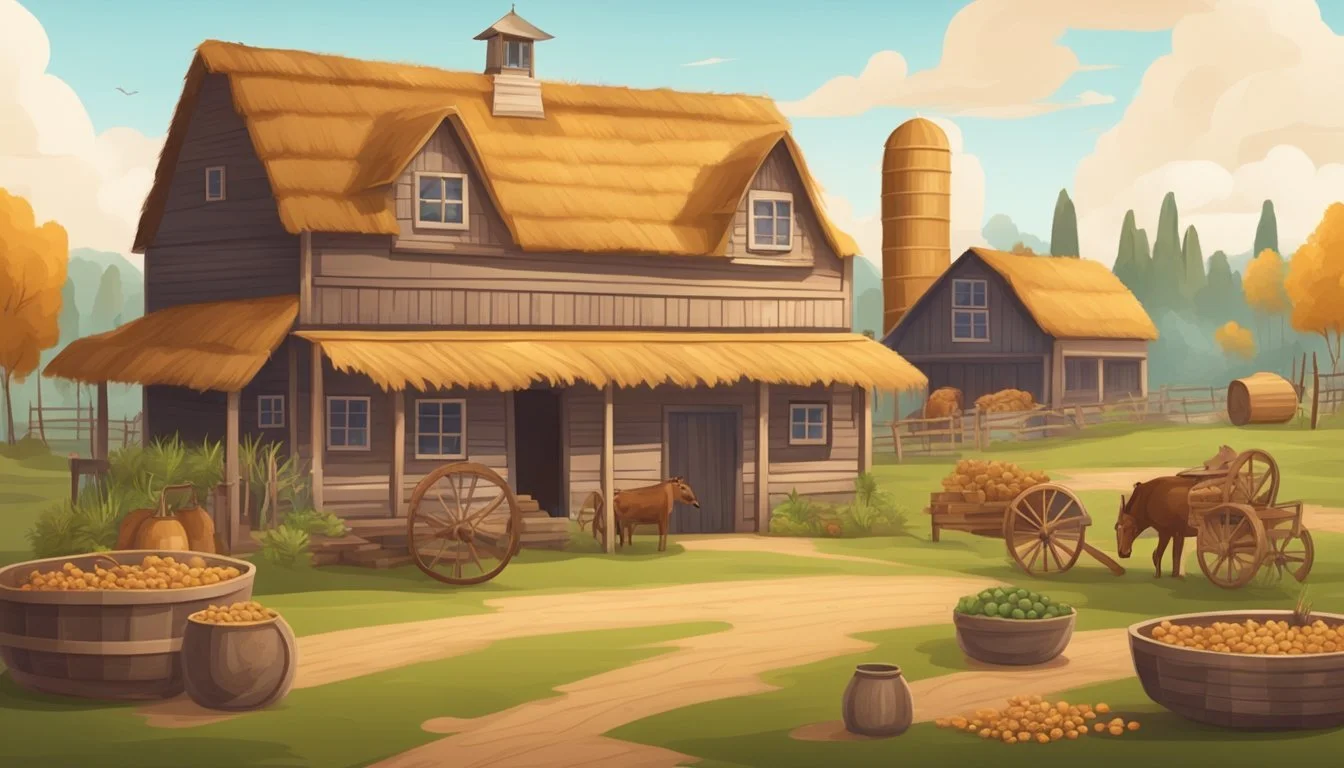Historical Farms and Agricultural Museums in New Hampshire
A Guide to Preserved Heritage
New Hampshire's historical farms and agricultural museums offer a unique window into the rural past and provide an opportunity to understand the rich agricultural heritage that has shaped much of New England's culture and economy. Visitors to these sites can step back in time and experience the daily realities of farm life from past centuries. Institutions like the NH Farm Museum preserve and showcase rural farm life, often featuring historic farmhouses, barns filled with tools and wagons, and a variety of farm animals that were integral to daily operations.
These museums serve as educational resources, demonstrating the evolution of farming techniques and the historical context of agriculture in the region. For instance, The Poore Family Homestead Historic Farm Museum not only highlights a vast collection of artifacts related to everyday life on a farm but also portrays historical narratives through personal diaries and letters. Through their collections and exhibits, these institutions effectively chronicle the ongoing story of New Hampshire's agrarian past.
Beyond their historical displays, these sites sometimes function as working farms, deepening the authenticity of the visitor experience and fostering an appreciation for the state's ongoing agricultural endeavors. The commitment to education is evident at locations like the New Hampshire Farm Museum, where guests can learn about farm life through interactive tours and activities. By preserving these slices of history, New Hampshire's agricultural museums offer profound insight into the region's enduring connection to the land and its resources.
Historical Farms in New Hampshire
New Hampshire's agricultural heritage is well-preserved through various historical farms and agricultural museums that continue to educate and demonstrate rural life from past centuries. These sites offer a tactile bridge to the past through preserved farmhouses, traditional working farms, and exhibits full of rural artifacts.
New Hampshire Farm Museum
The New Hampshire Farm Museum stands as a testament to the state's agricultural past, showcasing three centuries of farming history. The museum is located on White Mountain Highway in Milton and features the historic Jones Farm and Plummer Farmhouse. Visitors can tour the farmhouse, explore a large barn with antique farm equipment, and even participate in interactive activities like grinding corn to feed chickens.
Living Historical Farms
Living historical farms offer a unique opportunity to experience farm life as it once was in New Hampshire. These sites function as open-air museums where historical farming techniques are still used, and costumed interpreters engage visitors in daily rural activities. They provide hands-on educational experiences where one can learn about cultivation methods, livestock care, and the historical significance of agriculture to the region.
Working Farms as Historic Landmarks
Many working farms in New Hampshire double as historic landmarks, offering a glimpse into the state's rich agricultural tradition while still producing crops and livestock. These farms preserve historic buildings and continue using traditional farming practices. Visits to such farms allow for an authentic understanding of New Hampshire's agricultural history and the importance of sustainability and heritage preservation.
Agricultural Museums and Exhibits
New Hampshire's rich agricultural past is encapsulated through various museums and exhibits that offer a tangible connection to the rural farm life that once predominated the region.
Barn and Farm Implement Collections
The New Hampshire Farm Museum showcases an array of historical farm implements and tools. Visitors can explore the 104-foot great barn that houses wagons, sleighs, and a plethora of agricultural artifacts, providing insight into the ingenuity and evolution of farming techniques across different eras.
Agricultural Exhibits and Eras
Exhibits at these museums often focus on different time periods, detailing the progression of agricultural practices and the life of farm laborers. For example, a new exhibit recently emerged in Visalia that narrates the history of farm labor, displayed in a building expressly constructed for this purpose, although outside New Hampshire, it exemplifies the typical scope and narrative these exhibits aim to portray.
The Role of the Association for Living History, Farm and Agricultural Museums (ALHFAM)
ALHFAM plays a pivotal role in supporting living history, farm, and agricultural museums. Their efforts are instrumental in preserving the heritage of rural farm life, advocating for the continuous sharing of knowledge, and fostering community among institutions that manage collections of cultural significance. ALHFAM's reach extends to members who curate exhibits that illustrate the deep connection between agriculture and American history.
Educational Programs and Activities
Historical farms and agricultural museums in New Hampshire offer a variety of educational programs and activities designed to provide immersive experiences into the state's rich agricultural past.
Tours and Guided Experiences
Visitors have the opportunity to partake in guided tours of historic farms and homesteads that elucidate rural life. The New Hampshire Farm Museum allows individuals to explore the historic Jones Farm and Tavern, where they can venture through a large barn housing an assortment of farm tools and vehicles.
Workshops and Special Events
Throughout the year, the workshops and special events engage attendees in hands-on activities that celebrate and preserve farming traditions. They can learn traditional skills and crafts that were integral to farm life. Additionally, special events are held to commemorate different aspects of agricultural history with demonstrations and festivities.
School Programs and Educational Outreach
Schools programs provide educational outreach with a focus on New Hampshire's history and agriculture. At the New Hampshire Farm Museum's school and youth programs, students can immerse themselves in farm-based experiences such as churning butter, feeding chickens, and participating in tours that include a hands-on look at historical artifacts within an expansive barn setting.
Conservation and Carrying Forward Traditions
In New Hampshire, a dedicated approach to conserving agricultural heritage ensures that historic farming traditions are not only remembered but actively practiced and experienced by current and future generations.
Role of the National Park Service
The National Park Service (NPS) plays a pivotal role in the conservation of these historical sites. They provide resources and support for preserving landscapes and structures integral to America's agricultural past. Initiatives by the NPS ensure that these historical farms remain part of the community fabric, offering educational programs and promoting sustainable practices.
Preserving Agricultural Heritage
The preservation of agricultural heritage in New Hampshire is typified by institutions like the New Hampshire Farm Museum. This museum actively conserves agricultural artifacts, farm buildings, and traditional farming methods, functioning as a living archive of the rural past. By maintaining the heritage breed of animals and heirloom varieties of plants, the museum facilitates a direct link to agricultural customs and techniques that shaped the region.
Living History and Reenactment Activities
Living history farms and reenactment activities are instrumental in carrying forward the traditions of rural farming life. They offer visceral, hands-on experiences that allow visitors to step back in time. Activities may include corn grinding, animal feeding, and traditional crafting, which all serve to educate and immerse visitors in the day-to-day operations of historical New Hampshire farms. Organizations like the Association for Living History, Farm and Agricultural Museums provide a network that supports these endeavors across the state and beyond.
Community Engagement and Membership
Historical farms and agricultural museums in New Hampshire place a strong emphasis on fostering close ties with the community, providing numerous ways for individuals to get involved through support, membership, and volunteer opportunities.
Support for Local Farms and Museums
Local farms and museums are vital to preserving New Hampshire's rich agricultural heritage. Organizations like the NH Farm Museum and Muster Field Farm Museum rely on community support to maintain operations. These can include financial donations, attendance at events, and spreading their mission through word-of-mouth.
Financial donations: Crucial for ongoing preservation and educational programs.
Event attendance: Supports the farms and museums while offering educational experiences to visitors.
Word-of-mouth: Increases awareness and encourages others to support.
Membership Programs and Benefits
Membership programs provide a structured way for the community to support and engage with these cultural anchors. For example, the Muster Field Farm Museum offers memberships that help keep New Hampshire's rural, agricultural traditions alive. Members often receive various benefits such as:
Free or reduced admission to events and exhibits
Regular newsletters keeping them informed on upcoming activities and organizational news
Special invitations to members-only functions
Discounts in museum shops or on merchandise
Volunteering and Community Functions
Volunteers are the backbone of these historical sites, and they contribute a wide range of skills to different functions. Both individual and group volunteer opportunities are available, which may include assisting with educational tours, event setup, or maintenance of the grounds. Community functions also serve as both fundraisers and educational experiences, often highlighting traditional farm activities to engage visitors. Such functions include:
Educational workshops: Teach skills like gardening and animal husbandry.
Seasonal festivals: Celebrate the history and traditions of rural life.
Historical reenactments: Bring the past to life for a modern audience.
Through these distinct avenues, members and volunteers can help sustain the legacy of New Hampshire's agricultural history for future generations.
Visitor Information and Resources
This section provides essential information for visitors planning a trip to historical farms and agricultural museums in New Hampshire. Here, one can find specifics on how to get there, when to visit, and the amenities available upon arrival.
Location and Directions
The New Hampshire Farm Museum is situated on a picturesque landscape in Milton, New Hampshire. To reach the museum, visitors can take the scenic route via 1305 White Mountain Highway, Rt. 125. For detailed driving instructions, it's recommended to visit the farm's directions page.
Events Calendar and Operating Hours
Visitors can immerse themselves in rural farm life throughout the year, with a calendar full of events. To plan your visit around specific activities, check the events schedule. Operating hours vary seasonally, but starting from May 18 through mid-June, the museum welcomes visitors on Saturdays and Sundays from 10:00 AM to 4:00 PM.
Facilities and Visitor Center
The museum offers a robust experience complete with guided tours of the historic Jones Farm and a chance to explore the rich local history. A visitor center is available, providing guests with information and resources to enhance their visit. Those looking to take a piece of history home can browse the on-site store for unique souvenirs.






